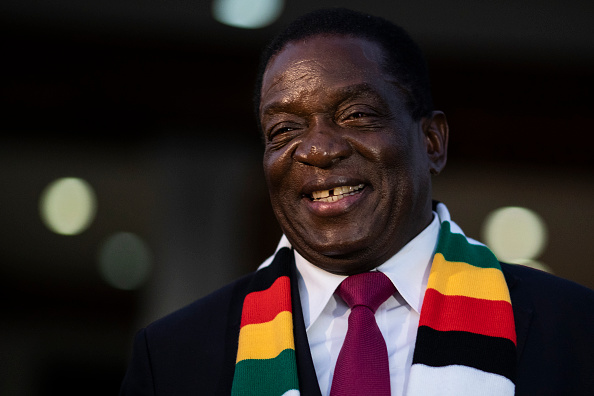Cape Town – The United States has reportedly maintained that it will not remove sanctions placed on Zimbabwe despite sentiments by many that they are hurting the economy of the southern African country.
South African President Cyril Ramaphosa last week told President Joe Biden that the sanctions imposed on Zimbabwe were affecting other countries in the region, as the situation forced economic migrants to leave Zimbabwe in droves in search of greener pastures.
Ramaphosa said this, as he concluded his official working visit to the United States at the incitation of Biden.
“We also raised the issue of sanctions against Zimbabwe and argued that the sanctions that are imposed on Zimbabwe have a collateral damage on us as South Africa in that as they implement those sanctions against Zimbabwe, it weakens the Zimbabwean economy, resulting in Zimbabweans leaving Zimbabwe in droves going to neighbouring countries – South Africa, Botswana and Namibia.
“And we then suffer collateral damage as a result of that because when they come to our countries, they obviously want services which we have to provide and it imposes a burden on our own countries,” Ramaphosa said during a media briefing.
Ramaphosa speaks on his discussion with Biden about sanctions on Zimbabwe (enca) pic.twitter.com/SLbGBGPG57
— Zim Media Review (@ZimMediaReview) September 17, 2022
The Zimbabwean sanctions were first imposed in 2002 after then US President George WBush approved the ”Zimbabwe Democracy and Economic Recovery Act” on December 21, 2001.
This was in response to what the Western countries said was the Zimbabwean government’s “economic mismanagement and undemocratic practices”.
It was also in response to the land reform programme initiated by the Zimbabwean government’s decision to repossess land from minority white farmers for redistribution to landless Zimbabweans.
The country has, since then, suffered from high inflation and a dwindling economy. Living costs have risen substantially, with many Zimbabweans seeking refuge and a better life in surrounding countries.
But according to News24, US Ambassador to South Africa Reuben E Brigety said the US did not believe claims its sanctions had caused Zimbabwe’s declining economy, as they were targeted at specific individuals and entities.
Brigety said that it was disinformation driving the blame on the US for the suffering experienced by the country.
ALSO READ | WATCH | Zimbabwe sanctions ‘are affecting other countries in the region’, Cyril Ramaphosa tells Joe Biden
“That is not our view as the US government. Not to say that the economic situation is not a problem. In our view, the sanctions are very targeted. This is a crucial point on distinction on what we believe is misinformation,” the report quoted Brigety as saying.
He continued: “We made it clear from our perspective that the issue is the behaviour of the government of Zimbabwe. The United States is not seeking… [a] regime change, but we are concerned about the increasingly repressive environment inside Zimbabwe.
“We would be open to a change in the sanctions regime if there were a change in the repressive political environment inside Zimbabwe. And that is not news, that is US law, and it is clear.”
Meanwhile, the African Union reiterated its push for the US, European Union and the United Kingdom to lift sanctions against Zimbabwe at the United Nations General Assembly in New York.
The “harsh measures continue to fuel a sense of injustice against an entire people, and aggravate their suffering in these times of deep crisis”, The North Africa Post quoted AU chairperson, Senegal’s president Macky Sall, as saying.
A 2021 report disclosed that “since the sanctions came into effect Zimbabwe has lost access to more than $100 billion in bilateral donor support, grants, and loans from the IMF, the World Bank, and the African Development Bank, and the African Development Bank. World Bank data shows that at the height of sanctions, Zimbabwe’s GDP contracted from $6.78 billion in 2001 to $4.42 billion in 2008”.
Follow African Insider on Facebook, Twitter and Instagram
Picture: Twitter/@peterndoro
For more African news, visit Africaninsider.com
Compiled by Betha Madhomu


